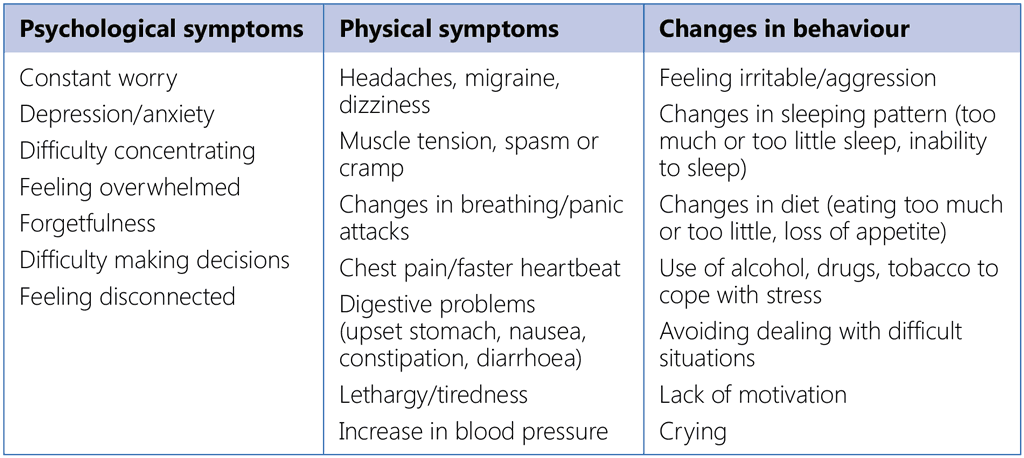كتاب روابط اجتياز لـ 4.5. Counselling to provide psychological support
Section 3.2.2 describes factors that can affect a person’s psychological health, cause distress, decrease their quality of life, prevent them from following their treatment plan and cause them not to be able to complete a course of treatment.
Being diagnosed with TB and worrying about its impact on what a patient needs to do daily – employment, income, family and taking treatment as prescribed – can be an extremely stressful experience. A stress response can manifest in psychological symptoms, physical symptoms and changes in behaviour (see Table 4).
Table 4. Symptoms of stress

People with TB may be more vulnerable to developing severe stress responses. Common mental disorders and TB are both associated with greater social vulnerability, inadequate living conditions and socioeconomic inequality (17, 47–49). People with mental illness may find it very difficult to take the long treatment course required for TB (50). People with mental illness and TB would particularly benefit from psychiatric care (51). Additionally, some of the TB medications are associated with psychiatric side-effects (52).
It is extremely important to recognize and deal with the stress reactions in people who are at risk by finding out what their worries and concerns are and by offering support. They should be referred to specialist services if necessary. This section focuses on providing basic psychological support, strengthening social support, problem-solving technique, and providing support to caregivers and dependent family members.

 تعليق
تعليق